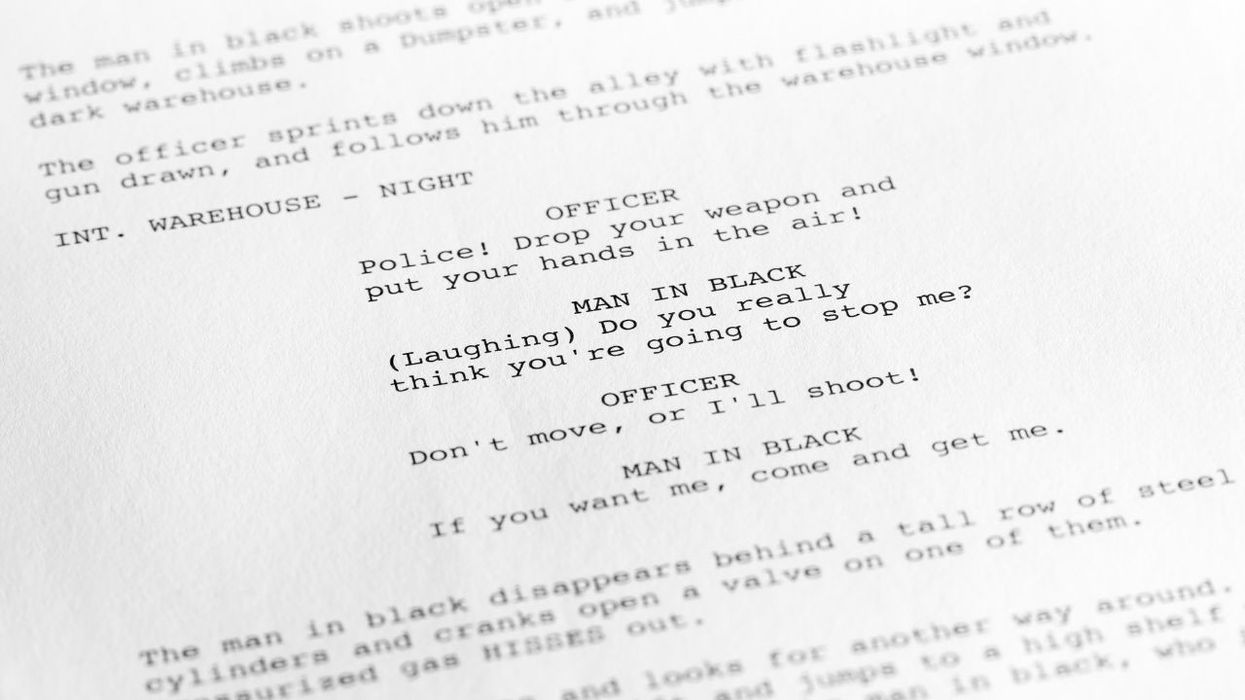
I feel like everyone is always so excited to write their story that they forget formatting their screenplay matters.
Sure, what you write is just a blueprint for what happens on the screen, but there are some accepted ways for how to get that blueprint across to people.
Check out this video from Tyler Mowery and let's talk after the jump.
That was a fun and informative video, and I think Tyler's channel is great, but all you need is this page from The Writer's Store and some screenwriting software.
Seriously, that's it. Don't make this complicated.
You can learn all you need to know about formatting here.

The actual hard part of writing is the storytelling aspect. The creation of characters and the worldbuilding can also be complicated. But when it comes to putting things on the page, this general formatting is the most accepted.
What if I want to break the traditional script format?
Ask yourself one question: "Will my formatting change make the read more enjoyable or get the tone of the project across more clearly?"
If you answered "yes," then go ahead and break the rule. If you answered "no," then maybe don't.
Again, I hate seeing people making anything more complicated than that. Formatting is there as a guide. It's a way to say, "Hey, this is the way most professionals do it in many situations."
But obviously, there are circumstances where you might want to switch it up. You might want to bold a word to make it stand out. You might want to write in ALL CAPS to emphasize that something big is happening. You might want to use italics to show annoyance at explaining something or underline an important clue.
These options and more are open to you. But you also do not have to do any of that.
Your story will be the reason your script sells. Not the gimmicks. Not perfect formatting.
I can tell you the more professionally formatted scripts are easier to read for assistants and therefore favored. But I have also seen sloppy ones sell for millions of dollars.
At the end of the day, just do what you think makes the most sense in the story. What conveys the ideas better?
It really is that simple.
Now stop procrastinating and get writing!
What's next? Get our free screenwriting eBook!
So much of what we're talking about on No Film School when it comes to screenwriting is summarized in our new eBook. It also helps guide you through a 10-week writing plan that will get your script actually finished.
Source: Tyler Mowery
- Learn Script Formatting (& Why Screenplay Format Matters) ›
- How to Format Text Messages in a Screenplay ›
- How to Format Your Screenplay for Filmmakers (Movie Script Template) ›
- A Guide to Special Formatting Circumstances in Screenplays | No Film School ›
- Screenplay Examples: From Action to Westerns and Everything Between | No Film School ›











